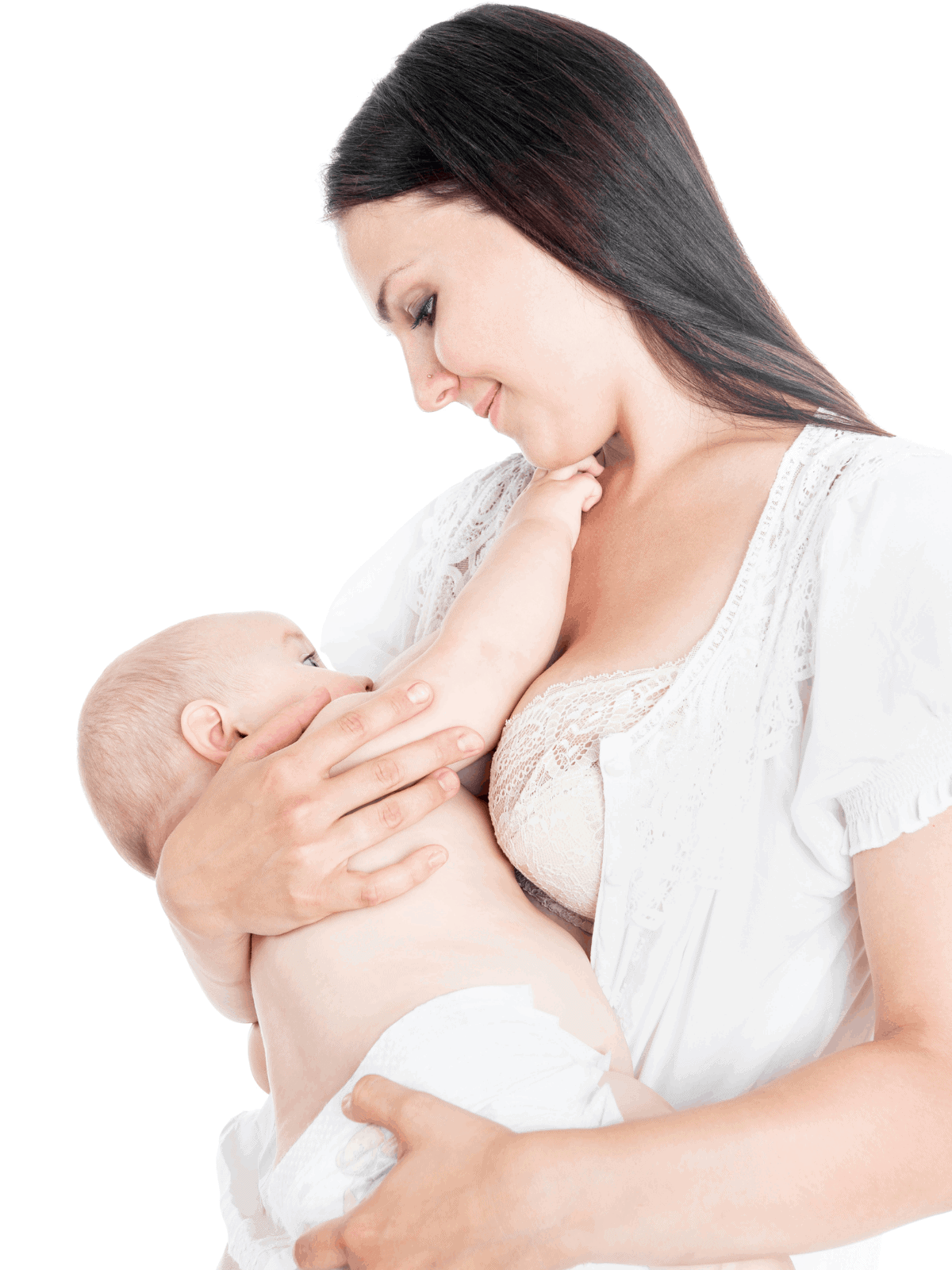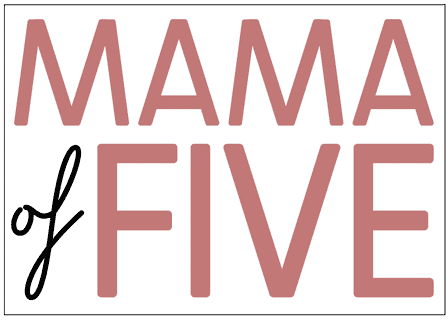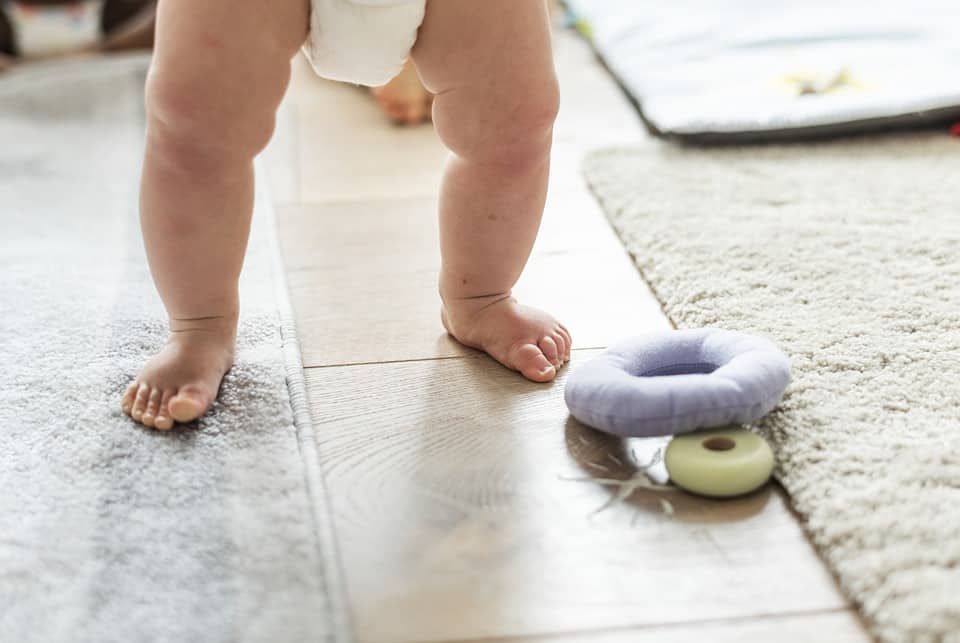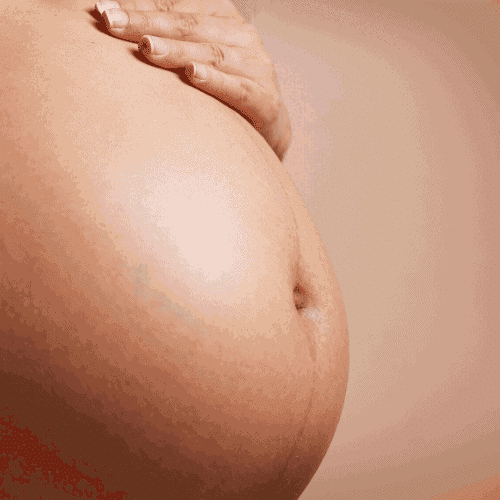Having a baby is a life changing experience, but it also changes your body. While we’re aware of some of the more obvious changes that come from giving birth, as your baby grows up, this process goes on.
If you’ve chosen to breastfeed your baby, the time will come when you decide to wean your child. At this point, many mothers wonder about what happens to her body after she stops breastfeeding and starts the weaning process.
If you’re also unsure, don’t worry. We’ll walk through what happens together and answer all those nagging questions that every mom has.
As an Amazon Associate I earn from qualifying purchases. The links below may be affiliate links. Please read my disclosure policy for more information.
Can Stopping Breastfeeding Cause Hormonal Imbalance?
The short answer to this is “yes”. But presumably, you’d like the longer answer. Simply put, stopping breastfeeding causes several significant changes in your body. These are both physiological, as your body readjusts to cause your breasts to stop lactating, and they are hormonal.
For many mothers, this hormonal change causes both physical and emotional changes once they start weaning their child. This is normal and all part of the process, but some moms find it more difficult, especially when we’re talking about the emotional side of things.
Shortly after you give birth, your body starts to produce a hormone called prolactin, while reducing the production of estrogen and progesterone. This change in hormones is known to affect the mom’s emotions. You know, on top of the life changing experience of bringing a tiny life into the world and the inevitable exhaustion that comes with it.
Anyway, prolactin is the hormone that allows your body to produce breastmilk in the first place. Prolactin also triggers your body to release a hormone called oxytocin. Where prolactin produces breastmilk, oxytocin is what allows the milk to travel to your milk ducts and, in turn, to your baby.

As well as this, Oxytocin is known as the “feel good” and the “love” hormone and is what helps you to feel so close to your child, as well as lowering stress and anxiety. This makes it easier for you to breastfeed your child, because you’re more relaxed and you’re bonding with your baby.
Once you start weaning, we see all these hormonal changes reversed. You stop producing prolactin, for obvious reasons. This, in turn brings the production of estrogen and progesterone back to normal. However, because you no longer produce prolactin, your oxytocin levels will also drop.
Remember, oxytocin reduces anxiety and helps the mom to relax and bond with their baby. When it goes away, along with the loss of that intimate process of breastfeeding your child, some mothers really struggle with stress or low mood. This is especially true if the mom is prone to anxiety to begin with.
But don’t worry, there are some things you can do to help this process along. There are other ways to bond with your child, such as cuddling them a lot, especially if you’re feeling low. Taking care of yourself physically is very important, as well as talking to people that you trust when you need to.
In some cases, these emotional issues can be more severe, with symptoms similar to post-partum depression. This usually passes when mom’s hormones return to normal, but it’s sometimes a good idea to see a licensed mental health professional to help you to cope in the meantime.
Related: How To Dry Up Your Breastmilk Without getting Mastitis.
How Long After Stopping Breastfeeding Do Hormones Return to Normal?
There isn’t really a set timetable before your hormones will return back to normal, unfortunately. We’re all unique, with slightly different circumstances and even different reproductive systems. It’s just one of those things that makes us all special.
However, there are some general trends. Depending on how long the weaning process takes for you and your baby, your hormones can return to normal either relatively quickly or over a longer period of time.
Simply put, the faster you wean, the sooner your hormones will go back to normal. However, the process itself will be more difficult for you. On the other hand, if you wean gradually, it will take longer for your hormones to return to normal, but the ride will be easier.
On average, your body will probably take about two or three months to get back to its normal hormones levels. But again, every mother is different, so it’s normal for the process to take more or less time than this.
This means that you don’t necessarily have to worry if your body doesn’t follow the same timetable as someone else’s. You can also make this process easier on yourself by extending the time it takes to wean your child, although this will mean your hormones will take longer to return to normal.
Related: Demand Feeding vs Scheduled Breastfeeding for Newborns – What’s Best for Your Baby?

What Happens If You Stop Breastfeeding Suddenly?
In most situations, mothers are able to wean their children slowly and at their leisure. However, this isn’t always possible. Sometimes, a mom might either choose to or have to stop breastfeeding suddenly.
When you stop breastfeeding suddenly, it means that you and your child won’t be very well prepared for the change. For the child, they’ll quickly have to adjust to both a new diet, and to the loss of an activity that they find comforting. Babies may be more likely to get ear infections and colds.
Some children can handle this change well, but other children may have a harder time. With the emotional side of things, be sure to give them plenty of cuddles and attention. A teddy bear or a similar comfort item can be a great help. Mitigating the food issue will take patience, but you’ll get there in the end.
If your baby won’t take the bottle from you, it might help to let someone else try to bottle-feed them. With mom, they’ll be trying to breastfeed, but could be more adventurous with someone else. Children above 6 months old sometimes prefer a cup instead, and older toddlers may need a bit of distraction.
But what about mom? Well, you’ll have to deal with physical, hormonal, and emotional changes. These changes can happen even when you gradually wean your child, but they’ll be much less intense and easier to handle.
First of all, let’s talk about the physical changes of sudden weaning. When this happens, your body will continue to produce milk for a while. This can lead to leaky breasts, or even pain as your breasts become full of milk that has nowhere to go.
This engorgement can cause some issues, such as a breast infection known as mastitis. You might also be prone to a condition known as “milk fever”, where the mother experiences fever, chills, and muscles weakness. There are some methods to help deal with these problems and to dry up your milk more safely, which we’ll look at later.
Next, there’s the emotional effect of suddenly stopping breastfeeding. Breastfeeding is a bonding moment between you and your child, so even if you choose to stop it suddenly, it can be an upsetting process. If the mother is forced to wean suddenly, either through illness or a change in circumstances, it will likely be even harder emotionally for poor mom.
Finally, we have the hormonal changes. We’ve already looked at how the body produces less oxytocin when mom stops breastfeeding. If the weaning process is sudden, so is the drop in oxytocin, which makes the potential symptoms of anxiety and low mood more likely and more severe. Some mothers experience what’s known as “post-weaning depression”, so this is something to look out for.
If you do suddenly stop breastfeeding for whatever reason, it’s best to be aware of the potential effect on your body and emotions. This way, you know what to expect and can deal with it in the best way for you and your child.
Related: How to bottle feed a breastfed baby

How Long Does It Take for Milk to Dry Up After Stopping Breastfeeding?
Once a mother completely stops the breastfeeding process, the average amount of time for a mother’s milk to dry up is about seven to ten days. However, as ever, this can vary between mothers as they have different bodies and circumstances.
For some women, they find that it takes weeks for their milk to dry up and might even leak for months after they wean their child. If you’ve suddenly stopped breastfeeding while your child is at an age where they drink a lot of milk, this is more likely to be the case as your body won’t have got the message yet.
How Can I Dry Up My Milk Without Getting Mastitis
Mastitis is an infection of the breasts that can happen when your breasts become engorged by too much milk during the weaning process. It can be painful and worrying and can make the process of drying up a mother’s milk much more stressful.
However, there are ways to lower the risk of mastitis. If you wean your child gradually, your breasts will slowly produce less and less milk naturally. This is kinder on your body, your hormones, and your emotions, but will obviously take more time.
If you’ve already weaned your child and want to dry up your milk, you may still need to hand express milk every now and then to prevent mastitis. You’ll need to do this when you feel uncomfortable and too full of milk. The more you do this, however, the longer it will take to dry up.
Avoid binding your breasts, as it can make pain and leakage worse. Instead, wear a supportive bra and use ice packs to help with any inflammation. Some moms swear by sage tea, and some studies suggest that it can be useful. As ever, if you get worried, see a medical professional.
Related: How to start Pumping while breastfeeding
When You Stop Breastfeeding, Can You Start Again?
For whatever reason, a mother might have stopped breastfeeding and are wanting to start again. A common question among moms is: “can I breastfeed again after stopping for a week?” Maybe you were ill or away for a while or stopped and regretted it.
If so, don’t worry. It is possible to restart breastfeeding, although it might take a little time and patience. Some moms can produce a full lot of milk, but others might only be able to produce enough to partially breastfeed their child. This largely depends on how well established your milk supply was and how long you’ve stopped for.
Some of the methods of restarting breastfeeding actually mirror those of a mother starting to feed a newborn baby. Namely, lots of skin to skin contact and patience. Repeated stimulation of the breasts and expression will also help you gradually produce more milk and might help the baby to return to the breast if it’s been a little while.
Remember, breastfeeding is a supply and demand process. In order to get more supply, you’ll have to create a demand. One way to do this is to pump your breasts regularly. To begin with, you might produce very little, but it should build up over time.
The process of restarting breastfeeding can take days or weeks. It’s important to make sure that your baby is getting enough food at this time, and to not get discouraged because you need to supplement. Keep an eye on their diapers and their weight and learn to recognize when they’re drinking. Slow, deep sucks followed by a regular pause is a good sign.
Related: Do I have low milk supply?

When You Stop Breastfeeding, Does It Affect Your Period?
As with so many other things, there aren’t any strict rules for when you start your period after childbirth. If you don’t breastfeed, you’ll probably start your periods again within three months of giving birth.
Breastfeeding will usually hold your period off for longer, but not always. This is more likely to happen if you exclusively breastfeed your baby. This is because a breastfeeding mother is producing less progesterone and estrogen than other women, and these are the hormones that regulate periods.
Estrogen can interfere with milk production, so if you do have periods while breastfeeding, you might notice some changes in the amount of milk you produce and even the taste of the milk. You could also have nipple tenderness from the period, which can make breastfeeding uncomfortable.
Once a mother starts to wean her child, her period will return if it hasn’t already. This can happen immediately after stopping breastfeeding, or it can happen after a few months. If you increase breastfeeding again, it won’t get rid of your periods.






